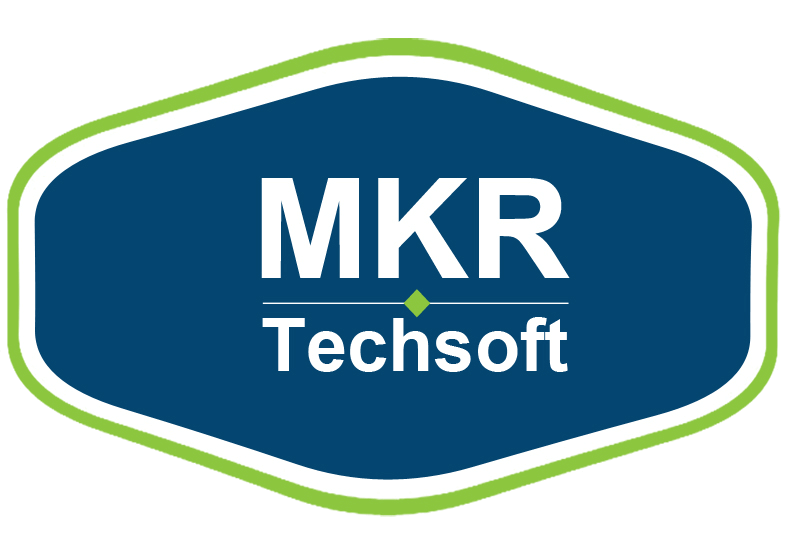In today’s digital age, social media is an essential tool for businesses of all sizes, including healthcare providers. A survey found that 57% of patients base their choice of where to receive medical care on the provider’s social media presence. However, developing and executing an effective social media advertising strategy takes time and effort, which is where MKR Techsoft can help.
As a social media marketing agency, MKR Techsoft has the expertise and experience necessary to help your business grow and succeed in the ever-evolving world of social media.
Social media advertising has significantly changed how healthcare providers and patients interact. It has become an essential tool for healthcare marketing, allowing providers to reach out to potential patients and establish a strong online presence. However, it’s necessary to follow certain guidelines when advertising on social media to ensure that you stay HIPAA compliant and don’t compromise patient privacy.
In this blog post, we’ll discuss the dos and don’ts of social media advertising for the healthcare industry:
Do Understand the Legal and Ethical Guidelines:
The healthcare industry is heavily regulated, and advertising must comply with various legal and ethical guidelines. Be familiar with advertising regulations set by the FDA, HIPAA, and other governing bodies. Some of the guidelines include the following:
- Advertising claims must be supported by scientific evidence.
- Patient testimonials must be truthful and not misleading.
- Advertisements must not make false or misleading claims about the product or service’s benefits.
- Advertisements must not minimize the risks associated with a product or service.
- It is essential to follow all regulations to avoid potential legal consequences.
Don’t offer specific medical advice:
Although social media is an excellent platform for sharing health-related news and articles, there are better places to provide personalized medical care. Healthcare providers must avoid offering specific medical advice on social media, even if patients request it.
Patients must be directed to make an in-person appointment with a healthcare provider. Your social media accounts should display your website and phone number, and you may want to include a statement saying that no medical diagnosis or treatment will be provided online.
Do share health-related news and articles:
Social media advertising is a great way to share industry news, medical advancements, and research relevant to patients. Healthcare providers should use social media platforms to disseminate health and wellness news to their followers.
For example, Main Line Health, a healthcare network in the greater Philadelphia area, frequently uses Facebook to share patient-relevant health and wellness news. Main Line Health’s Facebook page recently shared information about National Drug Take Back Day and provided specific locations within their network where medications could be safely disposed of, along with a clear call to action.
Don’t Make False or Misleading Claims:
Healthcare social media advertising must be accurate and truthful. Making false or misleading claims about your services or products can have serious consequences. Not only is it unethical, but it can also damage your brand’s reputation and result in legal consequences. For example, let’s say you own a chiropractic clinic and advertise that your services can cure chronic back pain. This claim is not supported by scientific evidence and could be considered misleading.
Similarly, using language that could be interpreted as misleading, such as “miracle cure” or “guaranteed results,” is unethical and can damage your brand’s reputation. These claims imply a level of certainty that scientific evidence may not support. Instead, provide accurate and truthful information about your services and their benefits.
Do Respect patient privacy laws:
Healthcare providers must abide by all relevant privacy laws, and any material that could potentially identify a patient, such as photos or names, cannot be shared on social media without explicit written consent from the patient. Healthcare providers must also be aware of HIPAA laws protecting patient confidentiality regarding social media advertising!
Any real-time updates impacting patients’ capacity to receive medical care at your facility qualify as a real-time update. These updates should be shared via social media, but be careful not to include any personal information that could violate HIPAA laws.
Don’t operate in a bubble:
Engaging with your social media followers to understand their concerns and questions is essential. If your audience is debating whether or not to get vaccinated against the flu, you may want to consider writing a blog post for your organization’s website and sharing it on social media to offer general health advice.
You can also use data from reviews on your social media pages to determine your company’s strengths and weaknesses. Social media is part of a broader conversation, and healthcare providers should use relevant hashtags, share content from other healthcare providers, and invite visitors to their pages.
Do be specific about what you expect from your administrators and followers:
Social media advertising has enormous potential for healthcare providers as a communication tool, but it’s crucial to set clear expectations for your employees and social media followers. Provide your employees with training and a handbook with social networking policies and branding standards.
Limit manager access to company pages and keep up with best practices. It’s also beneficial to set clear expectations for social media followers at the outset. For example, the Sunnybrook Hospital in Canada has released a social media commenting policy to promote civil debate and safeguard people’s privacy.
Don’t Ignore Negative Feedback:
In today’s digital age, social media has become a powerful tool for patients to share their experiences and opinions about healthcare services. While positive feedback can help build your brand’s reputation and attract new patients, negative feedback can be equally impactful in a negative way. It’s important not to ignore negative feedback and instead see it as an opportunity to improve your services and address patient concerns.
Ignoring negative feedback can seriously affect your brand’s reputation and patient trust. Suppose a patient has a negative experience with your healthcare services and shares their experience on social media. In that case, other potential patients may see this and be deterred from using your services. In fact, studies show that patients are more likely to trust online reviews than personal recommendations.
Respond to negative feedback professionally, provide solutions to any issues raised, and follow up with the patient privately to address any specific concerns they may have. Taking patient feedback seriously can improve patient satisfaction and establish your brand as a trusted healthcare provider.
Do Focus on Benefits Over Features:
By focusing on the benefits of your healthcare services, you can create a more compelling message that resonates with potential patients. By highlighting the benefits of your healthcare services, you can create a more emotional connection with potential patients and establish trust with them.
Another benefit of focusing on the benefits rather than the features is that it can help you stand out in a crowded marketplace. Many healthcare providers may offer similar services or treatments, but by highlighting the unique benefits of your services, you can differentiate yourself from the competition and attract more patients.
Social media users often seek valuable information that can help them improve their lives. By providing useful and informative content for social media advertising that highlights the benefits of your services, you can attract more followers and establish your brand as an authority in the healthcare industry.
Let MKR Techsoft Help you Grow Your Healthcare Business!
MKR Techsoft is a digital marketing agency that offers a range of services, including social media advertising, to help businesses promote their products and services online. When it comes to healthcare businesses, MKR Techsoft understands the importance of complying with regulations and providing value to patients. We have experience working with healthcare businesses to create effective social media advertising campaigns that meet these requirements while also helping to build brand awareness and engage with potential patients.
Another way that MKR Techsoft can assist healthcare businesses is by creating content that provides value to patients. This could include educational materials on health topics, tips for maintaining good health, or information about the services offered by the healthcare business. By providing valuable content, healthcare businesses can establish themselves as trusted sources of information and build relationships with potential patients.
We can help your business develop and execute an effective social media strategy that can help you reach new heights. With our expertise and experience, you can engage with your followers, avoid HIPAA violations, promote public health, and convert followers into clients and patients when the time is right.
By working with a reputable digital marketing agency like MKR Techsoft, healthcare businesses can improve their online visibility, attract new patients, and grow their business!








